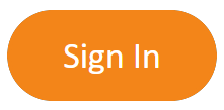Ever caught yourself thinking, “I’m meant for more than this—but I don’t know what’s next”?
If so, you’re not alone. Thousands of people every year feel the call to do something more meaningful with their lives—and many find themselves drawn to life coaching. It’s purpose-driven, flexible, and deeply rewarding. But the biggest question is usually: “How do I actually make the switch?”
Maybe you’re leaving a corporate career that never lit you up.
Maybe you’ve been the “go-to” listener your whole life and wonder if that could be your life.
Maybe you’re ready to build something that feels aligned—with your time, values, and growth.
This blog is your roadmap. You’ll learn:
-
What it really takes to become a life coach
-
How to know if this path is right for you
-
Practical steps to start—even with zero experience
-
How to overcome the mindset blocks that derail most beginners
Whether you’re exploring your options or ready to leap, this guide will help you transition into a life coaching career with clarity and confidence. Because this isn’t just about changing what you do—it’s about stepping into who you’re meant to become.
Step 1 – Know If Life Coaching Is Truly Right for You
Before you update your LinkedIn bio or start a business plan, pause and ask the deeper question: Is life coaching really aligned with who I am and how I want to serve?
Because while coaching is one of the most fulfilling careers out there, it’s not just about loving personal growth or being a great listener. It’s about holding space, empowering change, and doing the inner work yourself while you guide others.
What Life Coaching Really Is (and Isn’t)
Life coaching is a collaborative, client-led process focused on helping people achieve goals, overcome obstacles, and shift mindsets. You don’t need to have all the answers. In fact, you shouldn’t.
You do need:
-
A desire to help people grow without fixing them
-
A curious mind and compassionate heart
-
The ability to listen deeply and ask powerful questions
-
A growth mindset and a willingness to be coached yourself
You don’t need:
-
To have your life perfectly figured out
-
A psychology degree
-
A huge following or “expert” status
-
To be the loudest voice in the room
💡 Quick Gut Check: Do people come to you for support, clarity, or advice—even informally? Do you get lit up by conversations that go deeper than small talk? You might already be doing the heart of coaching without realizing it.
Real-Life Story: The Accidental Coach
Marissa was a project manager who always found herself being the unofficial team therapist. One day, a coworker said, “You’re basically a coach—have you ever thought about doing this for real?”
That sentence planted a seed. A year later, she was certified, coaching professionals through burnout recovery, and building a career that felt like coming home.
Why It Works (From a Neuroscience + Purpose Perspective)
When you coach, you’re working at the level of identity, beliefs, and neuroplasticity—helping clients rewire the way they think, behave, and lead their lives. That’s why coaching can be so powerful (and fulfilling).
And from a purpose-driven perspective? Coaching lets you align your passion with your profession. You get to help people grow while growing yourself. You get to be part of someone’s transformation—not from the sidelines, but as a trusted guide.
🧠 Coach Insight: Coaching isn’t about being perfect. It’s about being present. If you can show up with intention and empathy, you’re already on the path.
If you feel a spark reading this, that’s your intuition nudging you forward.
Step 2 – Get Trained and Certified (Without Overthinking It)
So, you’ve felt the spark. You know you want to help others grow, and coaching feels like a real next step. Now comes the big question:
“Do I need to get certified? And how do I even start?”
Short answer? Yes—if you want to coach confidently, ethically, and professionally.
But the good news is: you don’t need a PhD, decades of experience, or a six-month sabbatical to begin.
Why Certification Matters (Even in an Unregulated Industry)
Life coaching is currently an unregulated industry. Technically, anyone can call themselves a coach. But that doesn’t mean you should skip training.
Here’s why certification is important:
-
It gives you a clear, proven framework to guide your clients
-
It builds your confidence to show up and charge for your work
-
It sets you apart from “winging it” coaches with no process or integrity
-
It shows your clients (and yourself) that you take this seriously
Plus, the best programs include tools you can actually use in sessions—not just theory. They also help you grow personally as you prepare to support others.
🧠 Mindset Shift: Getting certified isn’t about permission—it’s about preparation. You already have the heart. Certification gives you the tools.
What to Look for in a Coaching Certification
Not all programs are created equal. When choosing a path, ask yourself:
-
Does it offer practical tools I can use immediately?
-
Is it designed for someone just starting out (without jargon or overwhelm)?
-
Is it flexible enough to fit into my current life?
-
Does it help with both coaching and building a business?
You don’t need the most expensive or time-intensive program. You need one that’s accessible, high quality, and focused on helping you start coaching—not just studying forever.
Real-Life Story: “I Was Afraid I’d Be the Oldest in the Room…”
Carmen, a 52-year-old former teacher, said she almost didn’t sign up for a certification because she thought she was “too late to start something new.” But after enrolling in Transformation Academy’s Professional Life Coach Certification, she not only graduated in under two months—she booked her first paying client within 30 days.
Her advice? “Start messy. The only thing that’s too late is the thing you keep putting off.”
Why This Works (Behavioral Momentum + Identity Shifts)
When you commit to certification, you do more than gain skills—you start shifting your identity. You go from “I think I want to be a coach” to “I’m becoming a coach.” That identity shift is powerful. It fuels momentum, rewires your beliefs, and begins to change how you see yourself.
And once you see yourself as a coach? The world starts to reflect that back to you.
Ready to explore how to find your coaching niche and stand out?
Step 3 – Find Your Coaching Niche and Voice
Let’s be honest—one of the most paralyzing parts of starting a coaching career is figuring out your niche. You might be thinking:
-
“Should I just coach everyone?”
-
“What if I choose the wrong niche?”
-
“Do I even know enough to specialize yet?”
Take a breath. You don’t need all the answers today. But you do need to start exploring who you’re here to help—and why.
What a Niche Really Is (Hint: It’s Not Just a Job Title)
Your niche isn’t just a clever tagline or Instagram bio.
It’s the problem you help people solve or the transformation you guide them through.
It’s the intersection of:
-
What you’re passionate about
-
What you’re skilled at
-
What your ideal clients need and are willing to invest in
Think of your niche like a doorway. It’s not your final destination—it’s the entry point people walk through to work with you.
🧭 Coach Tip: You can’t coach everyone. But you can start somewhere—and evolve as you gain clarity.
How to Discover Your Niche (Even If You’re Brand New)
Here are three prompts to help you uncover your starting point:
-
What challenges have I overcome that others might be facing now?
(e.g., burnout, divorce, people-pleasing, imposter syndrome) -
What kind of conversations light me up?
(e.g., helping creatives find clarity, supporting moms in reclaiming identity, guiding entrepreneurs through fear) -
Who naturally comes to me for support?
(Your current audience might already be giving you clues.)
Start there. Then test, refine, and adjust as you grow.
💬 “Clarity comes from action, not thought.” – Marie Forleo
Real-Life Example: Choosing a Niche That Feels True
Devon knew he wanted to coach, but struggled to pick a niche. He tried to market to “anyone who wants to improve their life,” but his message landed flat.
Once he got honest about his story—leaving a toxic job and rebuilding his confidence—he started focusing on coaching burned-out professionals seeking a more meaningful path.
That niche clicked. His message became clearer. People started reaching out. Why? Because he stopped trying to be everything to everyone—and started speaking directly to someone.
Why This Works (Psychology + Marketing)
From a brain-based perspective, humans are wired to pay attention to what feels personally relevant. When you name a specific struggle or desire, you signal:
“I see you. I understand you. I can help.”
And from a business standpoint, niches create trust and traction. They help you:
-
Stand out in a crowded market
-
Create content that connects
-
Attract clients who are aligned and ready to invest
You can always refine your niche over time. The point is to start where you are, with who you know you can help—right now.
Ready to build the business side of your coaching career?
Step 4 – Build the Foundations of Your Coaching Business
Okay—so you’re clear on your why. You’re getting trained or certified. You’ve got a sense of your niche.
Now comes the part many aspiring coaches find overwhelming:
Turning your passion into a business.
But here’s the truth: You don’t need a fancy website, a 12-module course, or a perfectly branded logo to start.
What you do need is a clear, simple structure to start working with clients.
Let’s break it down.
The Essentials of a Coaching Business (No Overwhelm Required)
You only need a few pieces in place to begin:
-
An offer – What are you providing? (e.g., 1:1 coaching, group programs)
-
A pricing structure – How much are you charging, and for what format?
-
A way to attract clients – Content, referrals, or social media presence
-
A way to get paid and scheduled – PayPal/Venmo, Calendly, Zoom or phone
-
Clarity on who you help and how – So you can talk about your work with confidence
Everything else—email lists, websites, funnels—can come later. Focus first on getting real coaching experience, even if it starts with free or discounted practice clients.
🛠️ Coach Reminder: Done is better than perfect. Start simple. Build as you grow.
Pricing with Integrity and Confidence
Most new coaches get stuck here. You want to help people, but you also want to make a living. Here’s what to keep in mind:
-
Start with a “beta” rate you feel good about—enough to signal value, but low enough to build experience
-
Package your coaching (e.g., 4 or 8-session programs) rather than charging per hour
-
Focus on transformation, not time—what’s the result your client is investing in?
Pricing isn’t just math—it’s mindset. It reflects your belief in your value and the courage to claim your work as worthy.
💡 Quick Frame: “This 6-session package is designed to help you move from burnout to clarity. We’ll meet weekly and focus on building habits that support your energy, confidence, and next chapter.”
Real-Life Example: From Side Hustle to Steady Flow
Jordan started coaching while still working part-time at a marketing agency. He posted simple tips on LinkedIn and offered three free sessions to test his process. Two of those turned into paying clients. By month three, he had a waitlist.
He didn’t start with a launch. He started with a conversation. He let the experience guide the structure, not the other way around.
Why This Works (Behavior + Confidence Building)
From a neuroscience perspective, taking action—any action—activates the reward centers of the brain and reduces fear. In business, this is gold. Because the sooner you start coaching, the sooner you’ll gather testimonials, refine your voice, and boost confidence.
Each “yes” you receive reinforces your identity as a coach. And that identity begins to feel real—not just in your head, but in the world.
You don’t need a massive audience to start a coaching business. You need a clear offer, genuine connection, and the courage to begin messy.
Step 5 – Make the Leap and Own Your New Career
This is the moment most aspiring coaches dream about—and fear:
Telling the world, “I’m a coach now.”
Whether you’re transitioning from corporate, education, healthcare, hospitality, or home life, this step isn’t just about changing your LinkedIn title. It’s about stepping fully into your new identity.
And yes—it can be scary. But it can also be liberating.
Why This Step Matters More Than Any Platform or Program
There comes a point where strategy isn’t what’s holding you back—it’s visibility fears. The inner critic pipes up:
-
“What will people think?”
-
“What if I fail?”
-
“Who am I to do this?”
But here’s what we know from coaching psychology and personal transformation work:
Action precedes confidence. Identity shifts come after we show up—not before.
Telling the world you’re a coach—even if your voice shakes—is the most powerful declaration you can make. It tells your brain, your body, and your future clients: “I’m in.”
How to Own Your New Role (Without Feeling Fake)
Start small, but start visibly. Some ideas:
-
Post a story about why you’re becoming a coach
-
Invite people to sign up for free practice sessions
-
Create a simple coaching offer and share it with your network
-
Tell former colleagues or friends, “I’m now coaching clients around [your niche]”
And remember: You’re not faking it. You’re becoming it. Confidence comes from showing up consistently, not waiting until you feel “ready.”
💬 Reframe It: “I’m not pretending to be a coach. I’m stepping into being a coach.”
Real-Life Example: Going Public, Imperfectly
Tina spent months secretly working on her certification. She built a website, drafted content, and practiced with friends. But when it came time to post online, she froze.
Eventually, she shared a photo of herself with a caption that said, “This year, I finally gave myself permission to do the work I was made for. I’m now officially offering life coaching for women navigating life transitions. It’s scary to say it out loud—but here we go.”
That post got more likes, comments, and inquiries than anything she’d ever shared.
Why? Because it was human. It was real. And it came from purpose—not polish.
Why This Works (Mindset + Mirror Neurons)
Your courage becomes a mirror for others. When you show up vulnerably, your audience resonates with it. From a neuroscience standpoint, mirror neurons activate when we witness someone else’s boldness—often inspiring us to do the same.
So when you declare your coaching path with authenticity, you’re already serving before the first session begins.
Final Mindset Shift: You’re Not Starting Over—You’re Starting Aligned
Every life experience you’ve had, every challenge you’ve overcome, every job you’ve worked—they all become part of your coaching foundation.
You’re not starting from scratch.
You’re starting from evolution.
Your Next Chapter Starts Here
Let’s take a breath and honor this moment.
You’re not just reading a blog about how to transition into a life coaching career—you’re considering rewriting your story. That takes courage. Curiosity. Vision.
Maybe you’re still unsure of the exact next step. That’s okay. The most important thing is this: you don’t have to wait until you’re fearless to begin—you only need to be willing.
Here’s What You Now Know:
-
Coaching is a real, viable, and growing career path
-
You don’t need to be perfect—just present, prepared, and passionate
-
Certification gives you structure, tools, and credibility
-
Your niche is your message—and clarity grows with action
-
You can build a business one conversation, one offer, one “yes” at a time
-
The leap is less about logistics, and more about identity
And through all of it, you’re allowed to feel excited, scared, empowered, unsure… and still keep going.
Your Empowered Next Step
If coaching feels like the right next chapter, consider this your nudge to say yes.
That “yes” might look like:
-
Researching certification programs
-
Journaling on your ideal client or offer
-
Booking your first free practice session
-
Declaring your path publicly (even just to one person)
Each of these is a bold move. Each one builds belief. Each one brings your future closer.
Want a Head Start with Tools and Training?
If you’re looking for a clear, accessible, and empowering path to become a coach—one designed especially for people starting from scratch—check out our
Professional Life Coach Certification.
You’ll gain:
-
A complete step-by-step coaching framework
-
Practical tools for sessions, marketing, and mindset
-
A flexible format to learn at your pace
-
A certification you can start using right away
We created this program because we believe the world needs more coaches who care—coaches like you.
Whatever step you take next, trust this: your desire to help others is not random—it’s a calling. And the moment you say yes to it, everything begins to change.








